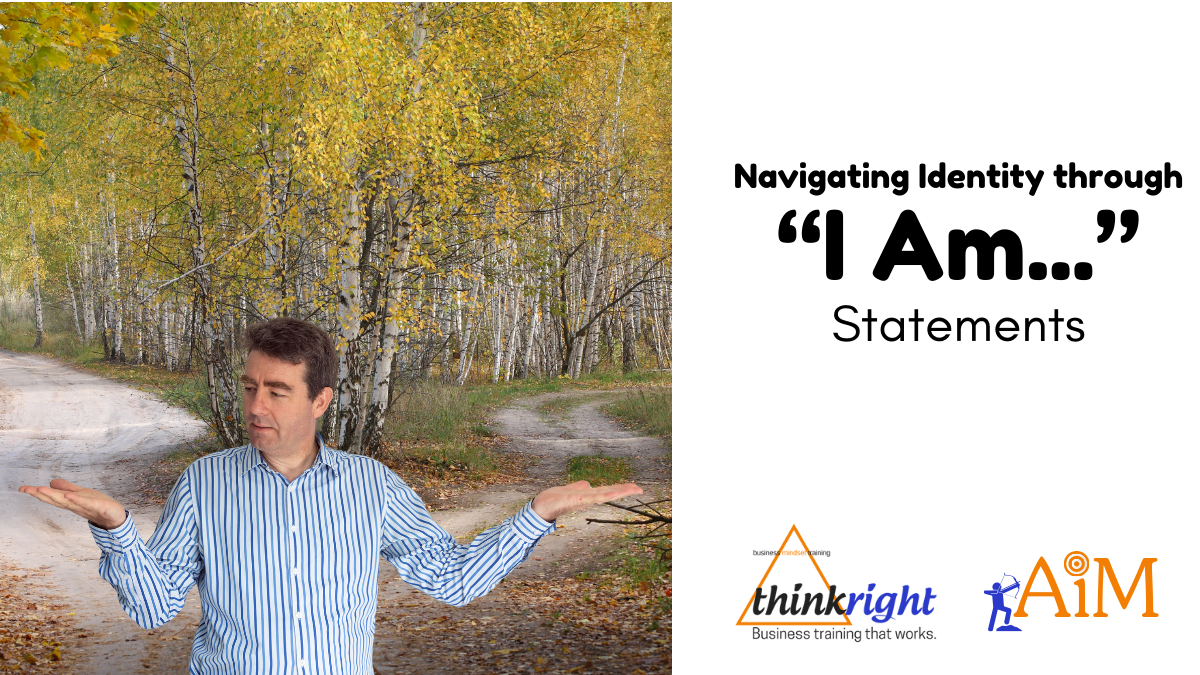The Power Of “I Am”
Your brain's number one job is to keep you alive. Your self-image of ‘you’ is so foundational to who you are that your brain will often evoke survival levels of activity if it perceives a threat to this mental construct – sometimes called your ‘ego’.
I, along with many others I know, experienced the effects of this with mathematics. Around grade 6 (approx. 12 yrs old), I started telling myself I was ‘bad at maths’. This internal story got repeated often and was reinforced by others and the fact that I never passed a maths exam in high school. I dropped maths as soon as I could. Whenever I saw a spreadsheet or maths formulas, I would tell myself that was not me and found that I got overwhelmed and shut down mentally when presented with figures. Then I got a job as a trainee production manager. Not only did the role require a high degree of mathematical fortitude, but there were multiple exams from accounts to financial management.
I failed my accounts exam. It meant a resit and delaying my diploma. I knew I would not graduate without passing. I was confronted by the fact that my negative self-image was detrimental. I resolved to change and prove to myself I could pass. I paid for personal tuition in my private time. I resat the exam and passed by 1%. The lesson I learned was far greater than the passed exam result. I realised I was not doomed to live under a limiting construct. When you learn to proactively choose, change, and shape your identity, you move out of passivity and into the role of creator. You get to create your life rather than just live it. The power lies in the stories you tell yourself and the meaning you give to these stories.
Consider the debate around climate change. When discussions arise about the impact of human activities on the environment, there are varying opinions. If you choose to consume information that suggests climate change is a natural occurrence and not influenced by human actions, you might surround yourself with like-minded individuals who share this viewpoint. Through social media algorithms and personal discussions, you may find your beliefs reinforced, creating a self-reinforcing narrative.
On the other hand, if you engage with information highlighting the role of human activities in climate change, emphasising the importance of sustainable practices, you may identify as someone who values environmental responsibility. Your interactions with others who share similar views, coupled with the information you expose yourself to, contribute to the formation of an identity, such as being an advocate for climate action.
In both cases, the stories you tell yourself and the information you choose to accept influence your beliefs and, consequently, your identity. Imagine someone declaring, 'I am a climate change sceptic.' These words after "I am" not only define their perception but also reveal their identity. They might resist policies advocating for environmental regulations, viewing them as unnecessary interference.
On the other hand, someone might declare, 'I am an environmental advocate.' These words similarly define their perception and identity. They might actively engage in practices that reduce their carbon footprint, support policies aimed at environmental conservation, and participate in community initiatives promoting sustainability.
The "I am..." statements become crucial as individuals align themselves with specific beliefs. These declarations shape behaviour and influence actions, creating distinct identities within the broader discourse on climate change. The key takeaway remains: the stories we tell ourselves, and the information we choose to consume, shape our beliefs and, consequently, our identities.
It is both your internal dialogue as well as the information that you're feeding yourself. The stories you tell yourself are not just internal ones. They're news that you read, conversations that you listen to, and basically all forms of information that you take in.
Here is a chance to check your information bias - Open your phone and have a look at your social media feeds. What patterns do you see? Reflect on how your conversations with your friends and the thoughts that you have in your own head get influenced by what you read as you scroll through your social media.
People who don't have social media still receive information. They might receive it through newspapers, radios, TVs, even movies. In a similar way to social media use, people listen to radio stations, podcasts, and even music that expresses their viewpoints. They buy newspapers, read magazines, articles, and blogs that have a point of view that they find favourable.
Is the information you are feeding yourself and dwelling upon serving you well? Is it reinforcing the image of who you want to be and become?


